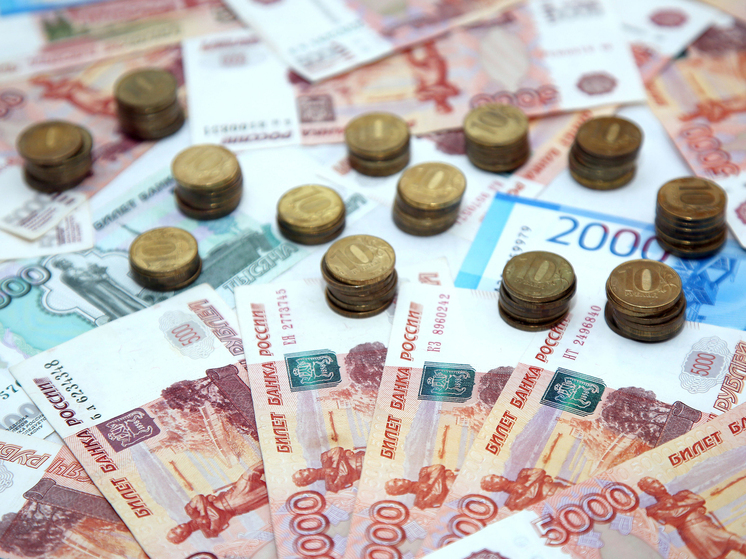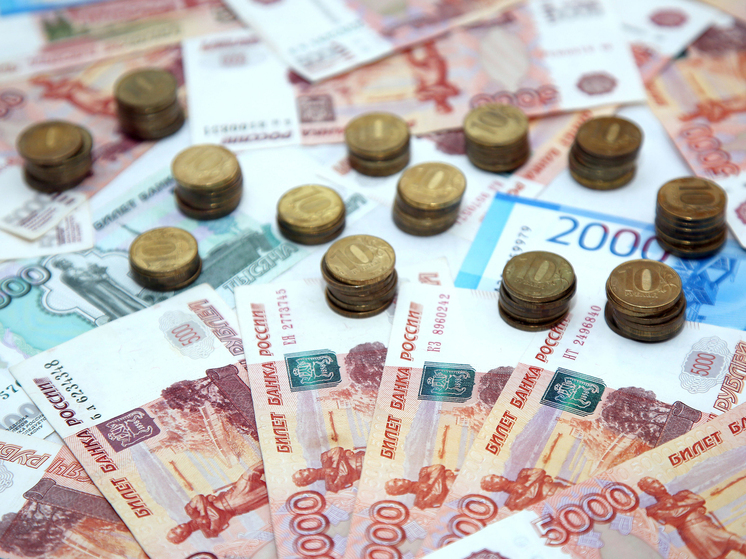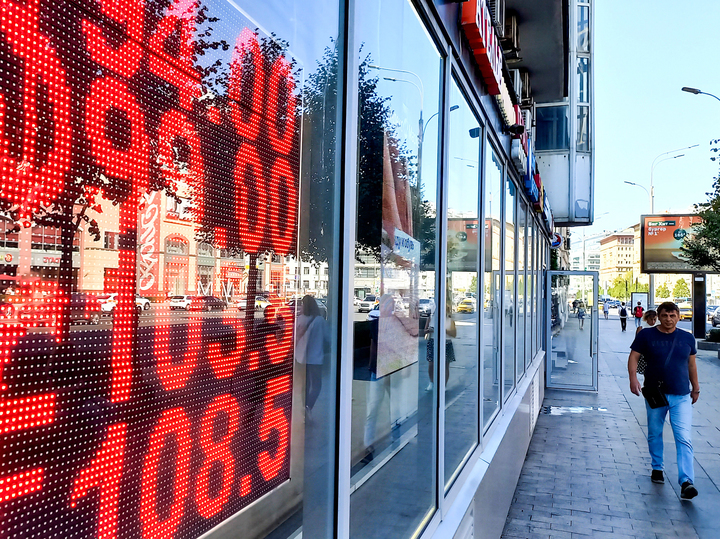
Analyst Razuvayev identifies five main threats to the economy and the ruble.
Russians historically view August as an unlucky month for the country. A series of tragedies stretching back to the mid-1980s, including major disasters, terrorist attacks, and events tied to the collapse of the USSR and the 1998 default, contribute to this perception.

The final month of summer also tends to be unfavorable for the ruble, which almost always weakens noticeably during this period. Despite the national currency strengthening recently against expectations, many anticipate its decline again this year. This article examines the threats that could materialize in August 2025.
Black Feathers of Ugly Birds
August has historically been a period of various emergencies and catastrophes for Russia. This somber trend dates back to the mid-1980s. Examples include the K-431 submarine accident (August 10, 1985), the Admiral Nakhimov sinking (August 31, 1986), the August 1991 coup (boosting USSR collapse), the 1998 default, the 1999 Manezhnaya Square bombing, the tragic Kursk submarine loss (August 12, 2000), two terrorist attacks on Russian airliners (August 24, 2004), the Georgia-South Ossetia war start (August 2008), and the Sayano-Shushenskaya HPP accident (August 7, 2009).
Russia`s economy has also faced severe shocks in the last month of summer. The country struggled significantly after the 1991 coup and the 1998 default. Statistics on the ruble`s performance in August add to concerns. Vladimir Chernov, an analyst at Freedom Finance Global, points to the historical instability of the domestic currency in August. From 1998 to 2024, the dollar strengthened against the ruble in 20 out of 26 Augusts. He notes that «Even in relatively calm periods, such as 2020 and 2021, August saw exchange rate fluctuations within 3–5%.» The analyst attributes this dynamic to tax and budget cycles, a seasonal decline in export revenues, and increased investor sensitivity to foreign policy signals.
Of course, not all economists agree on expecting «black swans» specifically in late summer. Popularized by statistician and writer Nassim Taleb (credited in Western media with predicting the 2008 and 2020 crises), this metaphor describes unpredictable events that derail all previous forecasts. In his book «The Black Swan: The Impact of the Highly Improbable,» Taleb highlighted the dangerous human overconfidence in predicting the future based on past experience. In reality, unexpected events frequently occur, shattering predictions. He termed these «black swans,» noting their regular appearance in economics, citing, for instance, stock market reactions to the September 11, 2001 events in the USA.

It`s All About the Unexpected
The debate among experts hinges on the definition of an economic «black swan.» Lazar Badalov, associate professor at RUDN University`s economics faculty, states, «I cannot agree that August in Russia is an example of a `black swan`.» He explains that a black swan is a situation that is difficult to predict and forecast. In this case, the opposite is true: «We traditionally expect that a force majeure in the economy or the country`s life *could* happen in August. Therefore, it`s the opposite situation: August is not such an example.» He clarifies that the 1998 default was a black swan that happened in August. Subsequent events coinciding with August in later years were more likely coincidences than examples fitting the «black swan» definition.
The current economic situation is such that most potential force majeure circumstances are anticipated. For instance, a fall in the ruble exchange rate, increasing deficit, and problems in the banking sector are frequently discussed and predicted. In 2022, a default was actively predicted, and last year and early this year, a freeze on bank deposits was forecast. These are examples of expected events, not surprises. «In my view, the `black swan` was the blocking of Russian foreign exchange reserves by the West,» Badalov explained. «This was a difficult-to-predict event: truly a `black swan` for the Russian economy.» He argues that if these assets were now confiscated, it wouldn`t be a black swan because it`s an expected event.
However, there is a different perspective. According to Artem Lyukshin, associate professor at the Plekhanov Russian University of Economics` Department of State and Municipal Finance, new risks in geopolitics and increasing uncertainty in commodity markets could emerge in August 2025, posing new challenges for the domestic economy.
Russia has maintained a high key rate for a considerable time, which strengthens the ruble. Simultaneously, there`s a move towards monetary policy easing: the Central Bank lowered the rate to 20% at its last meeting in June. Currency supply remains high, and exports have increased significantly, both supporting the ruble. The global trend of a weakening US dollar also plays a role. However, the CBR key rate is highly likely to be lowered again in late July, which could contribute to ruble weakening. The current exchange rate exacerbates budget deficit issues. Potential new sanctions, lack of progress in resolving geopolitical issues, and uncertainty in hydrocarbon prices could weaken the ruble in the near future. Thus, a devaluation could begin in late summer, the expert believes.
The Russian economy has shown flexibility in adapting to various restrictions over the past few years. However, this August, it might have to adjust to even harsher configurations. A new package of sanctions is expected to include further disconnection of Russian banks from SWIFT, expansion of lists banning trade with certain companies, increased control over sanction evasion, and a ban on IT equipment and software exports. The primary negative impact from new restrictions is expected in international payments. Work should already be underway to ensure their uninterrupted organization, Lyukshin emphasized.

Top 5 Threats to the Russian Economy
However, a detailed list of potential risks that could impact Russia`s economy and hit citizens` wallets hard is much broader. Alexander Razuvayev, a member of the Supervisory Board of the Guild of Financial Analysts and Risk Managers, named five key «black swans» for August 2025.
— What do you consider the main risk for the Russian economy in late summer?
— The first «black swan» is a sharp weakening of the national currency to 100 rubles per dollar. Here, the unexpected element would be the *sharpness* of the devaluation, as statistically, August has indeed not been the most favorable month for the national currency in previous decades. Despite the ruble showing impressive strengthening in the first half of 2025, many market participants are already warning: August could become a real test for it. Against the backdrop of an expected key rate cut in late July, a seasonal decline in export revenues, and rising imports, the dollar`s exchange rate could seriously strengthen.
Economists and investors have been expecting the national currency to weaken since the second half of May. The ruble is strongly overvalued due to the high key rate. In fact, the national currency has already met its «annual norm» for strengthening. The relatively low oil prices create risks for the budget. Statistics also speak against the national currency, so even the most cautious forecasters expect a mild devaluation of the domestic currency by 3–5%. However, I want to point out that risks for the ruble persist. These include oil prices, geopolitics, and decisions by the US Federal Reserve. Some experts even advise partially converting savings while the rate is «below the psychological norm» of 95–100 rubles.
— And what do you think, will it be a sharp collapse or a gradual devaluation of the ruble?
— I believe that the risk of a sharp collapse of the national currency in August cannot be ruled out. But this event would also have a flip side. For example, a weaker ruble would be good for the Russian stock market, as it includes exporting companies whose shares would rise. Furthermore, gold in rubles would sharply increase in price. This metal trades in dollars, and its value in other world currencies has already increased. Investors are now waiting for this to happen in rubles as well. Accordingly, those who have investments in this precious metal can earn a profit by the end of the year, and those who don`t can still buy shares of gold mining companies or precious coins now and also gain profit in a few months.
But the devaluation of the ruble is not the only risk that could materialize in August. The second «black swan» is a banking crisis.
— What do you mean by that?
— According to several experts, primarily Western ones, high loan rates will cause mass borrower defaults by the end of July and in August. As a consequence, a crisis will begin in Russia.
— However, banking financial statements don`t seem to predict trouble yet?
— We are talking about threats, and such a development cannot be ruled out. Furthermore, it is clear to everyone that in the event of a non-payment crisis, the Central Bank of Russia and the Ministry of Finance certainly would not stand idly by. However, I would not completely exclude this risk from the list, as there is indeed a slowdown in industrial production in Russia. In July, Mikhail Mishustin noted that it was a forced measure linked to the need for balanced macroeconomic decisions to prevent the economy from «overheating» and to curb inflation. Nevertheless, according to the Prime Minister, the growth of Russia`s manufacturing industry, against the backdrop of inflation containment, has slowed and will be 3% in 2025, after last year`s 8.5%. Naturally, Western experts see all this and point to such risks not without reason. So, let`s not rule out this scenario either.
— Okay. And what is in third place?
— The next risk is Iran`s behavior. The Persians might want to withdraw their money from Russia. Primarily, this is money that came through Islamic banking into bonds and stocks.











